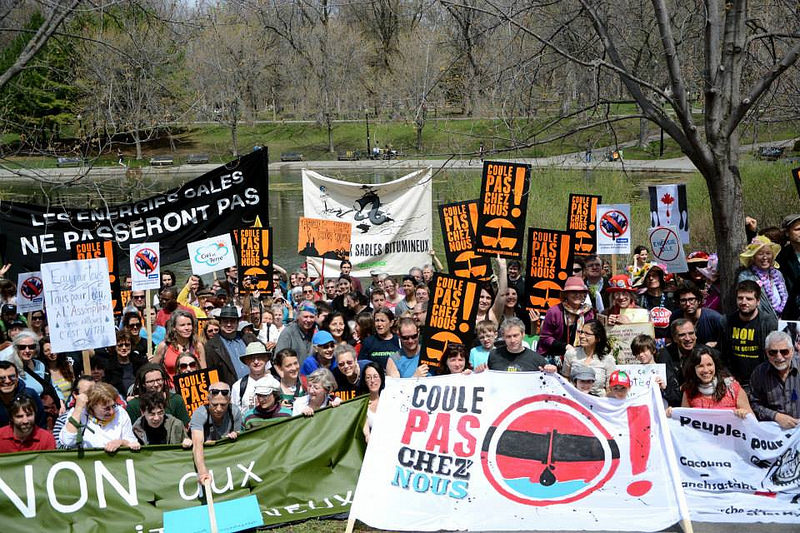The Canadian Press reports, “TransCanada Corp. will halt all work on an oil terminal in eastern Quebec in response to concerns the project could hurt a beluga habitat. The company said Monday it is ‘standing down’ on all work in Cacouna after a report by a federal government wildlife committee concluded that the whale is endangered.” The Sun News Network goes as far as to say, “Hours after a federal agency declared the beluga whales of the St. Lawrence River an endangered species, TransCanada Pipelines iced its plans to build a marine terminal on the river’s shores.”
But two other reports suggest it’s more of a pause. Bloomberg quotes TransCanada spokesperson Tim Duboyce saying, “We are standing down on any further work at Cacouna, in order to analyze the recommendation, assess any impacts from Energy East, and review all viable options.” And the Globe and Mail reports, “The Calgary-based pipeline company said Monday that it is suspending operations at the Cacouna, Que., site while it assesses a scientific report that recommends the belugas be declared an endangered species with full protection of its habitat.”
So what is really going on here?
La Presse canadienne reports, “TransCanada decided on Monday to temporarily stop work on its controversial oil terminal in Cacouna, carried out as part of the Energy East pipeline project. The Alberta company claims to have made this decision in order to allow time to analyze the recommendation of the Committee on the Status of Endangered Wildlife in Canada (COSEWIC), which requires that belugas in the St. Lawrence are recognized as a species disappearing. It is likely that the work will not resume until spring. The authorization drilling certificate issued by Quebec, came to an end on Sunday due. And winter is fast approaching, which would have forced discontinuation of work anyway. A spokesman for TransCanada Tim Duboyce, declined to speculate on a possible date of resumption.”
The Radio Canada article carries a similar caution. It reports, “The company announced the suspension of its work for its Cacouna Energy East pipeline project in the wake of the COSEWIC report. Note, however, that this decision coincides with the expiration Sunday of his certificate of authorization from the Ministry of Environment. TransCanada was therefore not allowed to continue its work immediately. …TransCanada reviewing its options.” And it quotes Duboyce saying, “We decided to stop our work in Cacouna to take the time to analyze the recommendation of COSEWIC to assess its potential impact on the Eastern Energy project and to review all viable options for the future. …We will take the time to discuss with our partners, elected representatives in Cacouna sector and business people to see what is the right way to proceed from this point.”
And so it would appear that TransCanada is not really “standing down” or putting on ice their plans for their oil loading terminal on the St. Lawrence River, but rather that their work permit expired forcing them to stop their survey work for the port until the spring.
The Council of Canadians has expressed its opposition to the TransCanada terminal in the St. Lawrence River in numerous campaign blogs, encouraged people to sign a petition calling on the Quebec government to stop TransCanada’s work on the terminal, encouraged its supporters to call their MP to back a House of Commons motion against the supertanker loading platform, produced a report that points to the threat posed to the St. Lawrence River and other waterways by the Energy East pipeline, has called for a ban on the transport of bitumen on the St. Lawrence River, and has stated that Prime Minister Stephen Harper’s tar sands export agenda threatens whales in Quebec, the Bay of Fundy and on the West Coast.
Photo: 350.org/flickr



